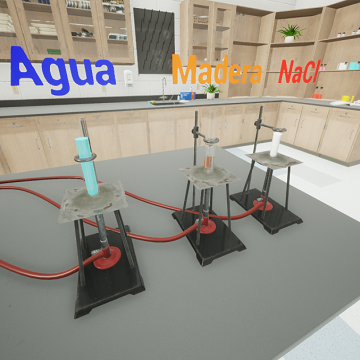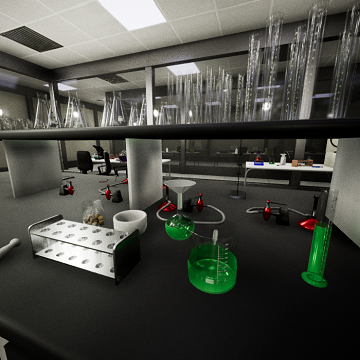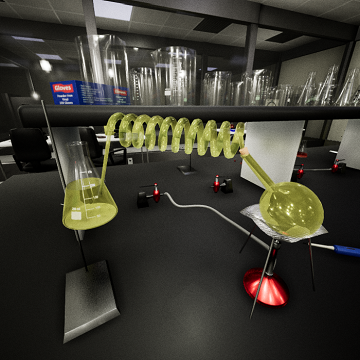Virtual Chemistry Labs
Complicated chemistry subjects are not a problem with virtual labs
The rise of new technologies, such as virtual reality (VR) and augmented reality (AR), has sparked an interest in their potential applications beyond the video game industry. VR environments can be customized to fit any specification, making them a versatile tool with various applications, including virtual laboratories for schools. These labs offer students the opportunity to conduct experiments as if they were in a physical classroom, but with the added benefit of accessibility, anytime and anywhere, without the risk of breaking equipment or harming themselves with substances. The field of chemistry, in particular, can benefit from virtual chemistry labs, as they offer the same learning experience as real equipment manipulation, minus the potential hazards.
In virtual chemistry labs, we can recreate the materials and their behavior, simulating any experimental procedure needed for each practice, such as differentiating compounds from mixtures and elements. All of these procedures can be done in a virtual environment that mimics real-life scenarios, providing flexibility, saving time and resources. For instance, in a physical lab, washing instruments after each experiment can be time-consuming, while in a virtual lab, reusing materials only requires a button click, and no actual compounds are wasted.
Virtual labs offer several benefits in simulating various scenarios, such as flame color differentiation when burning different compounds or elements, eliminating the risk of burns while allowing for multiple attempts without wasting actual materials. Procedures such as weighing an element or compound, or using a centrifuge machine for mixing elements, can also be simulated in the lab, saving time and providing the same results as a physical machine, but with a much quicker turnaround time.
The most significant advantage of using virtual chemistry labs is the removal of risks associated with damaging equipment, potential accidents to students or staff, and increased student participation. In physical labs, team members often have different participation levels in experiments. However, with virtual labs, each student can complete their practice without worrying about overusing elements or having to wait for equipment, fostering more involvement and better understanding of the content. Students can then share their results with their team, further enhancing their knowledge of the subject matter.
By Sofia Indira Calderón Alvarez
Contact Us














